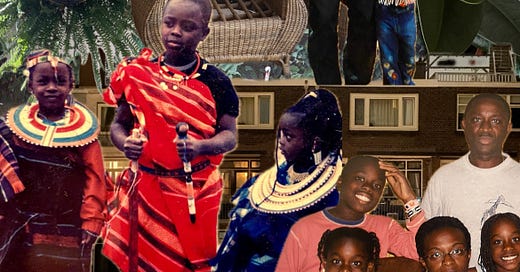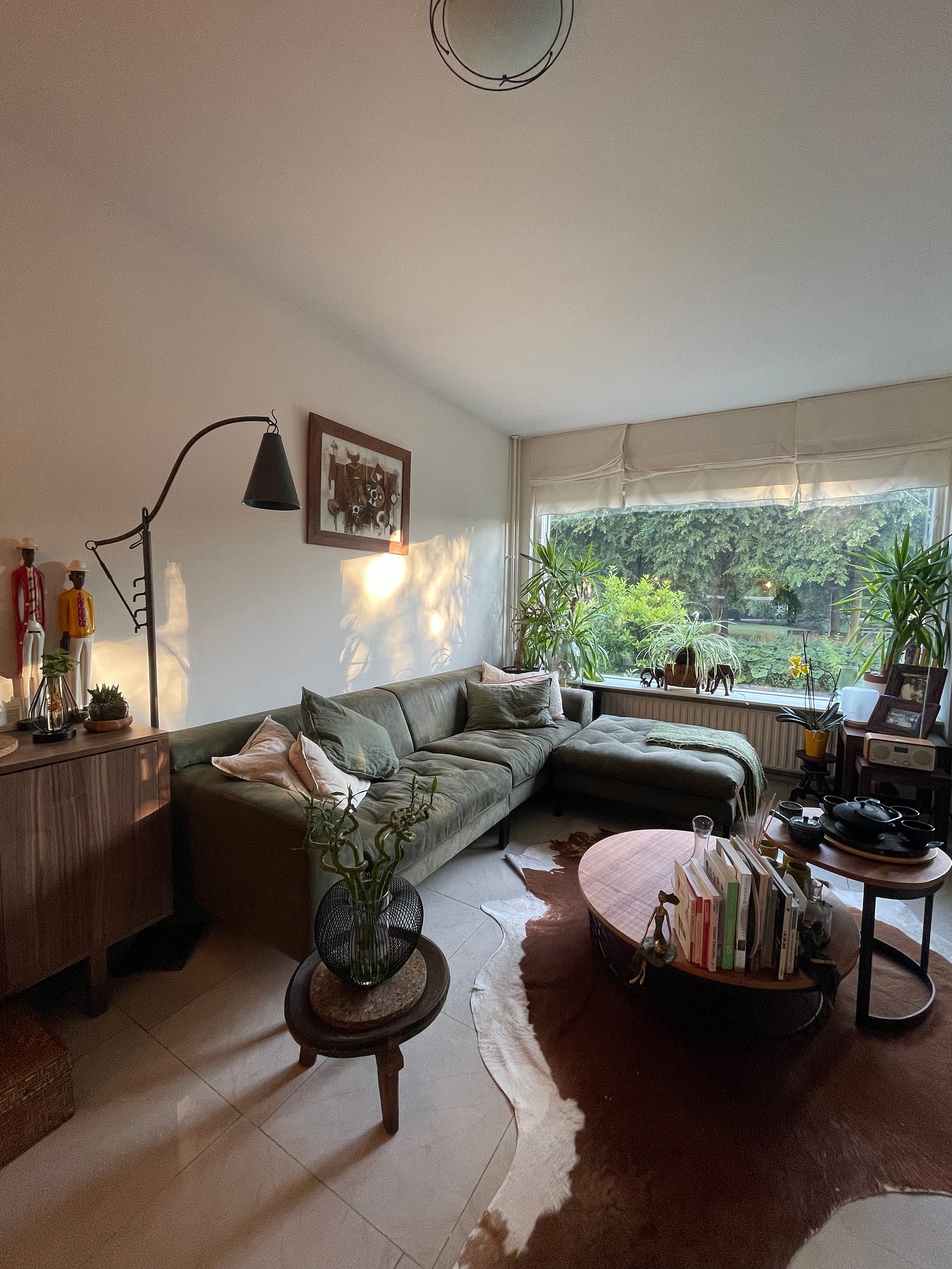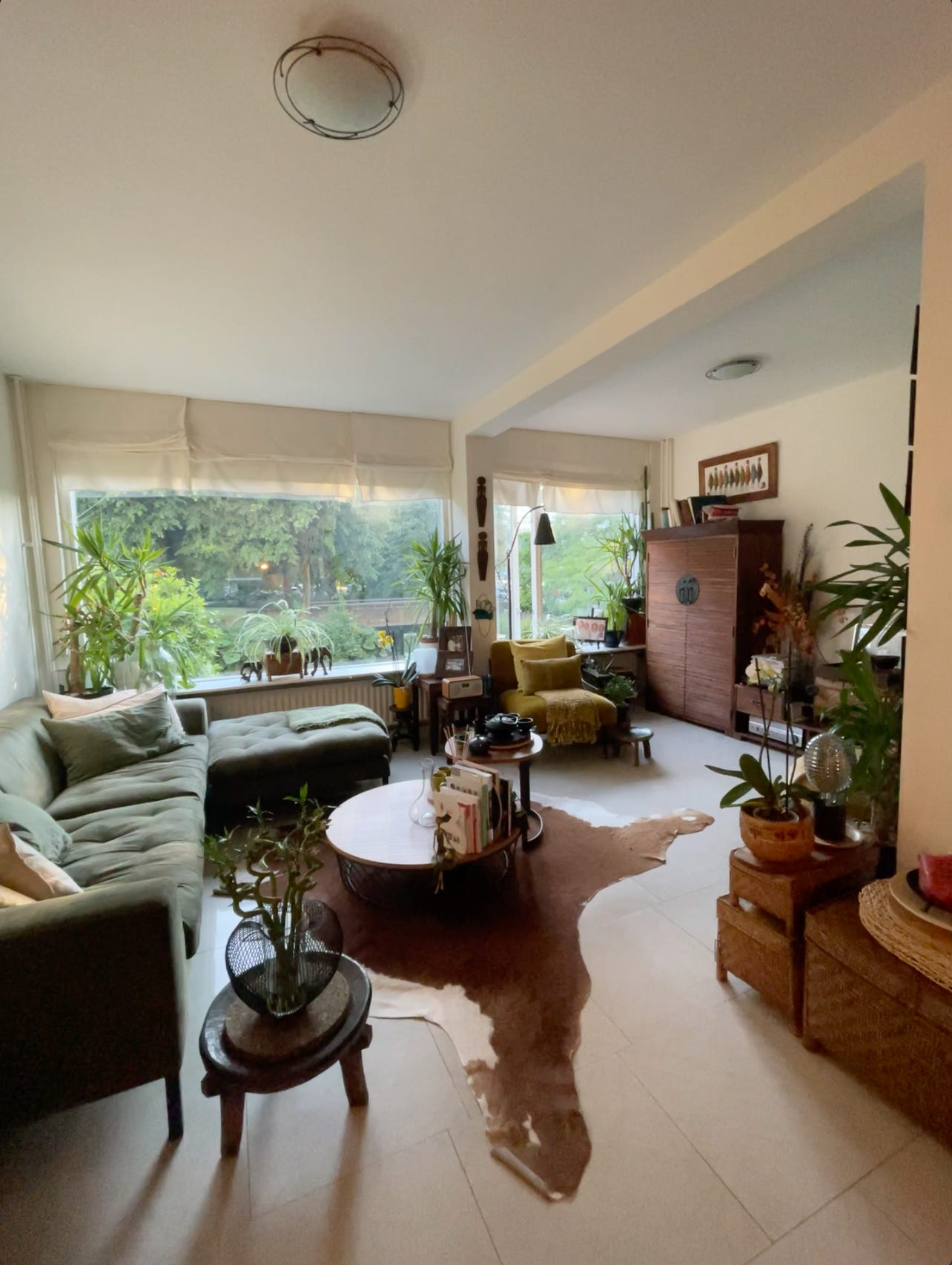Afro-eclecticism: an introduction and short exploration
Increased globalisation has resulted in new identities and ways of perceiving the world. With 'afro-eclecticism' I wish to add to the discourse surrounding identity, art and culture studies.
Eclecticism
The term eclecticism has its origins from ancient Greek philosophy [ ‘eklektikos’ meaning selective] 1. As an adjective, eclectic was used to describe philosophers who derived their systems of thoughts from various doctrines, not just one2. The contemporary meaning of the term “eclectic” encompasses a subject’s existence coming from diverse styles, theories, approaches, etc.
Afro-eclecticism (an exploration)
I decided to coin a new term//put in writing.
Afro-eclecticism (noun):
(1) a person of African descent who has their identity influenced by their significantly different *lived* cultural experiences.
*lived* as to not suggest a desired cultural assimilation- or appropriation, but rather a long term exposure and extended personal experience to cultural practices or lifestyles of a specific ethnic group, country or nation.
Let’s take me for example. I am Axelle Marie, a black woman born in Côte d’Ivoire to an Ivorian mother, and a Togolese and Beninois father. I moved to Tanzania at 2 years old, and then to The Netherlands at 7. I’d say my cultural influences significantly vary, which gives me quite an eclectic identity.
When I was six living in Arusha, an older man came up to me and asked me where I was from. This must’ve been the first time someone asked me this question because I looked at him puzzled and said, “what does that mean?” I vividly remember him laughing and saying, “it means where you are living” (granted this wasn’t the best explanation, but to his defence he was probably not going to give a long winded explanation to a child in passing). I told him, “Tanzania”, he replied, “So, you are Tanzanian!” Starting from then, I would walk around telling people I was from Tanzania. One day my mom over heard me saying this to my friend and she pulled me aside asking where I got this idea from.
Now that I’ve naturalised as a ‘Dutchie’, the answer to that question kind of changes-with context. Axelle Marie, forever a (West) African, predominantly raised in Europe.
Afro-eclecticism vs Third culture kid
I’d say afro-eclecticism is somewhat a synonym of third culture kid, with a bit more nuance.
Third culture kid refers to an individual who’s spent their developmental years in a culture different to that of their parents, and raised in a culture different to their country of origin (or their nationality)3. The ‘third culture’ is essentially an amalgamation of the parent’s culture and that of the host country, paired with the feeling of not fully belonging to either cultures. It’s living in a tertiary space, in-between, and beyond.
Comparatively, afro-eclecticism (as a noun) looks at this phenomenon particularly in regards to people of the African continent or the diaspora who are confronted and immersed in cultures that vary from their own.
Afro-eclectic influence in other subjects
Aside from identifying afro-eclecticism in people, I’ve noticed it can be associated with other subjects too. With this in mind, I am adding a sub proposition,
Afro-eclectic(ism) as an adjective:
(2) a word used to describe a subject of African origin that contains elements from diverse cultural sources.
In this section, I’ll briefly discuss it’s presence in music and interior design. Here the origins of eclecticism; ‘selective’, plays a more persistent role. Its presence is more arbitrary, with little to no rules. In subjects such as music and design, you can pick and choose, almost curate your aesthetic and sound.
Afro-eclecticism in music
Afro-eclecticism (or any ‘ethnic’-eclecticism for that matter) in music can be recognised through the playing/remixing of traditional songs, sounds, nursery rhymes, etc. with different genres such as electronic music categories, jazz, soul, rock, trap (and much more). Take a moment and carefully listen to a curated playlist of songs I believe are afro-eclectic:
Afro-eclecticism in interior design
In interior design, afro-eclecticism can be recognised in:
a) the physical arrangement of the space; the curation and decoration,
b) the choice of materials and texture, and
c) the form and function of the furniture and objects.
(My beautiful mother is an interior design, amongst many other things. This is her work, a result of her own cultural influences).
Take the image above, although some may consider this maximalist or ‘bohemian’ interior design, you can still notice the afro-eclectic influences. For instance, the foundation is based on sub-saharan, predominantly East and West African styles. This can be seen with the cow skin carpet, and the traditional decorations (Duafe [meaning "wooden comb” in Akan languages], Les Colons [wooden stick men dressed in French colonial attire], the wooden cabinet [inspired by the carpentry of Stone Town, Zanzibar], les Tabouret Akan [wooden stools] decontextualised to a plant holder). Moreover, modern design styles can be spotted with the seating and marble flooring, meanwhile a retro aesthetic is present through the radio and lighting choices.
There are many other elements at play here, this is just a tiny description. In another paper I will further explore it’s presences in these subjects, as well as other design spaces, such as fashion, jewellery and maybe architecture or food.
Closing statements
There are obviously various ways in which eclecticism can be explored. The boundlessness, almost confusing nature of it, makes it an exciting and beautiful phenomenon to study, especially in the 21st century where the borders of cultures and ethnic groups are being diffused.
It goes without saying that eclecticism, the way I’ve described it, can be experienced within any ethnic group. Despite this, I feel the desire to put an emphasis on ‘afro’ as this exploration encompasses my personal experiences. Moreover, I wish to study the experiences of (Black) Africans outside the continent, and this is one of many ways to make sense of the diasporic identities.
Given the colonial history of Africa, and many countries of the Global South, I feel our identity is imprinted on us as a result of pride (for some- others maybe not so much) and prejudice (othering). As a result, a person coming from an African country or having parents from there, you can never feel fully apart from your ‘nation’.
Eclectic. (2024). In Merriam-Webster Dictionary. https://www.merriam-webster.com/dictionary/eclectic#:~:text=Eclectic%20comes%20from%20the%20Greek,from%20every%20school%20of%20thought.
The Editors of Encyclopaedia Britannica. (1998, July 20). Eclecticism | Religious syncretism, cultural fusion & intellectual diversity. Encyclopedia Britannica. https://www.britannica.com/topic/eclecticism
Editors of Merriam-Webster. (2023). What is a 'third-culture kid'? https://www.merriam-webster.com/wordplay/third-culture-kid#:~:text=One%20related%20term%20being%20seen,or%20her%20parents%20grew%20up.






